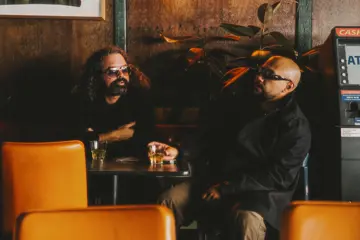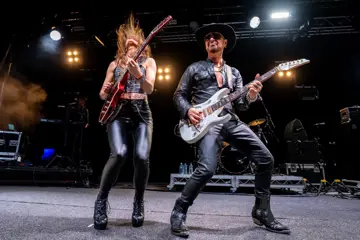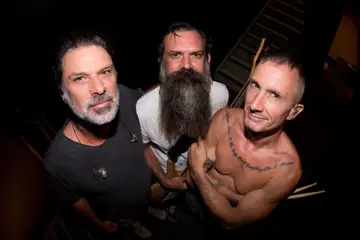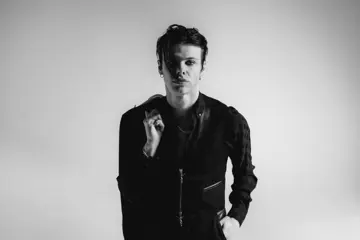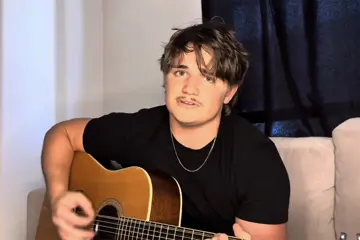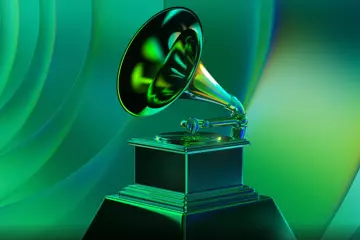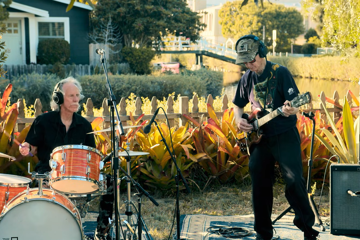
National Theatre Of Scotland's Our Ladies Of Perpetual Succour brings Alan Warner's novel The Sopranos to life on stage. And as soon as the 'ladies' transform from wee angels singing Felix Mendelssohn's Lift Thine Eyes into uncouth teenagers conversing about hand jobs, accidental threesomes and magic mushroom lager, we know we're in for a wildly uncensored ride. The girls regularly discuss the amount of unwanted teenage pregnancies at their school (which is cheekily referred to as "Virgin Megastore") and, while the cast's thick Scottish accents take some getting used to (not their fault), their singing and harmonies are flawless.
Although the play's action follows the six Catholic schoolgirls around various locations as they travel to Edinburgh for a choral competition, the stage set is simple: inside the only (dingy) nightclub - called Mantrap, appropriately enough - in the girls' hometown. There's also a statue of Our Lady on the stage's back wall and we hope she's blindfolded (and wearing earplugs). Although we're definitely prepared for the colourful language, if you're considering talking a teenager along we probably wouldn't recommend it.
Vicky Featherstone effortlessly directs the audience's attention toward specific characters as their personalities unfold and we learn what they've already endured in their relatively short lives. Transitions from songs into scenes are seamless, but sometimes humour from the previous scene leaks into the next; when our hearts should be breaking we're still grinning post-guffaw, which means we're not fully invested in the pathos. Such is the case when Joanne McGuinness (who plays cancer survivor Orla) tells of a sexual experience she initiated with a fellow patient while in hospital, which is truly horrific but also somewhat baffling.
All of the performances are outstanding, but Dawn Sievewright (Fionnula) has us in stitches when she takes on male roles. Embodying male physicality, her naturally husky voice easily translates to butch and we eagerly await the return of these parody characters. At times we even clock the excellent three-piece backing band cracking up. The girls' moving rendition of closing song Bob Marley's No Woman No Cry will stick with you, just like the use of Elton's John's Tiny Dancer during that tour bus scene in Almost Famous. But this leaves us wishing the potential for emotional investment was capitalised on earlier in the piece.
Don't miss a beat with our FREE daily newsletter

